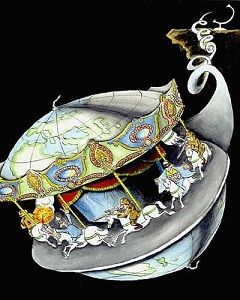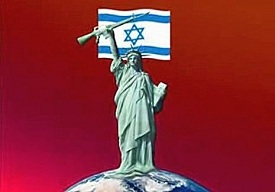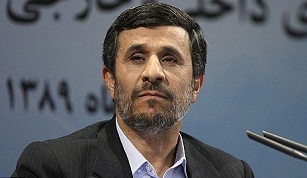The Anti-Empire Report
The Lord High Almighty Pooh-Bah of threats. The Grand Ayatollah of nuclear menace.
As we all know only too well, the United States and Israel would hate to see Iran possessing nuclear weapons. Being "the only nuclear power in the Middle East" is a great card for Israel to have in its hand. But — in the real, non-propaganda world — is USrael actually fearful of an attack from a nuclear-armed Iran? In case you've forgotten ...
In 2007, in a closed discussion, Israeli Foreign Minister Tzipi Livni said that in her opinion "Iranian nuclear weapons do not pose an existential threat to Israel." She "also criticized the exaggerated use that [Israeli] Prime Minister Ehud Olmert is making of the issue of the Iranian bomb, claiming that he is attempting to rally the public around him by playing on its most basic fears." [1]
2009: "A senior Israeli official in Washington" asserted that "Iran would be unlikely to use its missiles in an attack [against Israel] because of the certainty of retaliation." [2]
In 2010 the Sunday Times of London (January 10) reported that Brigadier-General Uzi Eilam, war hero, pillar of the Israeli defense establishment, and former director-general of Israel's Atomic Energy Commission, "believes it will probably take Iran seven years to make nuclear weapons."
Early last month, US Secretary of Defense Leon Panetta told a television audience: "Are they [Iran] trying to develop a nuclear weapon? No, but we know that they're trying to develop a nuclear capability." [3]
A week later we could read in the New York Times (January 15) that "three leading Israeli security experts — the Mossad chief, Tamir Pardo, a former Mossad chief, Efraim Halevy, and a former military chief of staff, Dan Halutz — all recently declared that a nuclear Iran would not pose an existential threat to Israel."


































